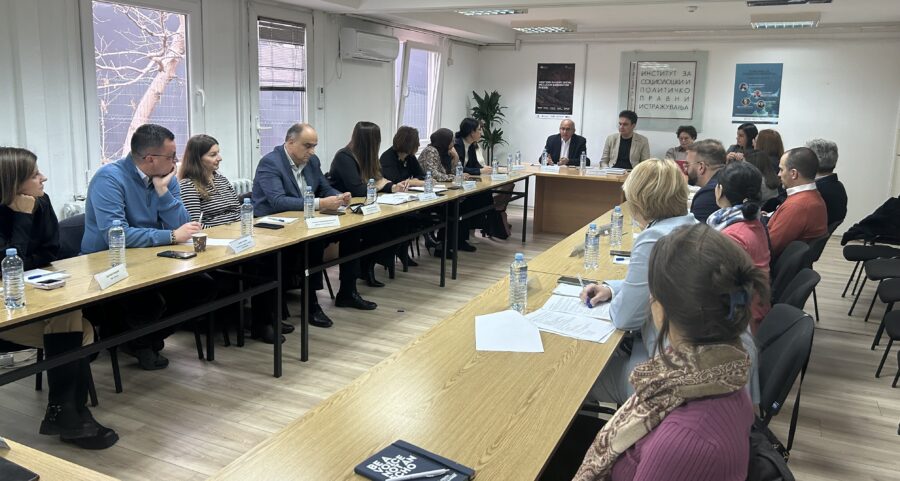During December 2024 and January 2025, the Institute of Social Sciences (IDN) organized meetings in Sarajevo, Podgorica, Skopje, and Banja Luka, bringing together representatives of academic institutions, state authorities, international organizations, and civil society. These meetings were part of the Western Balkan Social Inclusion Barometer (WBSIB) project, aimed at strengthening and improving social inclusion policies in the Western Balkan countries.
Key Objectives and Topics of the Meetings
Through these meetings, participants had the opportunity to become acquainted with the methodology for collecting valid and reliable data on the implementation of inclusive policies, developed by the Institute of Social Sciences in collaboration with its partners from the region. Additionally, discussions focused on regional cooperation and development in the field of social inclusion, as well as the challenges that countries in the region face in implementing these policies.
One of the most important aspects of the meetings was the presentation of a software tool for measuring social inclusion, developed through the WBSIB project. This innovative tool enables the collection of data on various aspects of social inclusion, thereby improving evidence-based policymaking. Initially tested on analyzing social inclusion strategies for Roma communities, the software now allows for measuring social inclusion among all vulnerable groups, including people with disabilities, youth, migrants, and other marginalized communities. Moreover, the system is designed to be further improved and adapted to different public policies in the region.
Regional Cooperation and European Integration
The meetings were particularly significant in the context of negotiations for European Union accession, as Western Balkan countries are required to develop inclusive public policies that ensure social inclusion for the most vulnerable groups. While numerous national, regional, and local policies have been adopted in this field, their implementation and monitoring are often hindered by a lack of valid data—one of the key challenges that the WBSIB project aims to address.
Next Steps
The conclusions from the meetings emphasize the need for stronger regional cooperation and exchange of experiences to improve social inclusion across the Western Balkans. Participants expressed their readiness for further collaboration in developing data-driven policies and adapting existing strategies to the needs of vulnerable social groups.
These meetings represent a significant step toward enhancing social inclusion and improving the monitoring of public policies in the region, with the ultimate goal of creating a society where all citizens are equally included in social, economic, and cultural processes.

